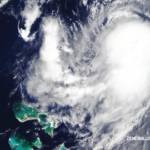In any event, don’t make your insurance policy your primary disaster plan, Stewart advises. “It’s always best if you can prevent as much of the loss as possible,” he says.
Marie Powers is a journalist based in Georgia.
Include Managed Care Contracts in Your Disaster Plan
During an emergency, medical practices must maintain payer contracts so they can continue to bill for the clinical services they provide. If physicians are caring for victims or if the practice site has suffered devastating physical damage, meeting the administrative requirements of your managed care agreements will be a low priority. As the community returns to normalcy, however, those details could create new burdens for your practice, according to James G. Fouassier, Esq., associate director in the department of managed care at Stony Brook University Hospital in N.Y.
If the federal government declares your community a disaster area, the Centers for Medicare and Medicaid Services may issue a waiver relieving healthcare providers of certain documentation and technical submission requirements for claims related to Medicare and Medicaid, Fouassier says. However, there’s no guarantee that the government will take this action, and private payers won’t necessarily be obligated to do the same. By adding language to your managed care contracts to address disaster scenarios, you can require payers to reimburse services, even if you’re temporarily forced to suspend standard billing practices.
Here are several strategies Fouassier suggests:
- Address the topic during contract negotiations, seeking to include language that defines precisely when a disaster or emergency is considered to have occurred. The usual description refers to an official declaration by a government agent or authority, but you should press for more limited situations in which an isolated incident, such as an explosion, destroys or seriously damages the building containing your practice. “Contract language shouldn’t be so specific that it can’t be flexible,” Fouassier advises.
- Require that contract language related to disasters suspends specific time frames and formats for claims submission. Your physicians won’t have time to document during an emergency, so you’ll likely face problems coding those claims properly. Ask commercial plans to accept any government accommodation that affects Medicare or Medicaid.
- Seek relief from requirements for preauthorization or notification for admissions, treatment, and discharge and request suspension of concurrent utilization reviews. Although it’s reasonable for payers to ask for some evidence of medical necessity once the disaster has ended, seek language that allows alternatives, such as physicians’ affidavits or copies of X-rays.
- Don’t be dissuaded if a payer claims that you’re protected by a standard force majeure clause, which typically states that the contract doesn’t anticipate war, natural disasters, and other “acts of God.” Given the lessons of 9/11 and Hurricane Katrina, combined with this year’s unusually severe weather events, practices are hard pressed to argue that they could not anticipate virtually any large-scale disaster, Fouassier says.
References
- Institute of Medicine. Guidance for Establishing Crisis Standards of Care for Use in Disaster Situations. September 2009. Available at www.iom.edu/Reports/2009/DisasterCareStandards.aspx. Accessed September 15, 2011.
- U.S. Department of Health and Human Services. A Management System for Integrating Medical and Health Resources During Large-Scale Emergencies. September 2007. Available at www.phe.gov/Preparedness/planning/mscc/handbook/Documents/mscc080626.pdf. Accessed September 15, 2011.


